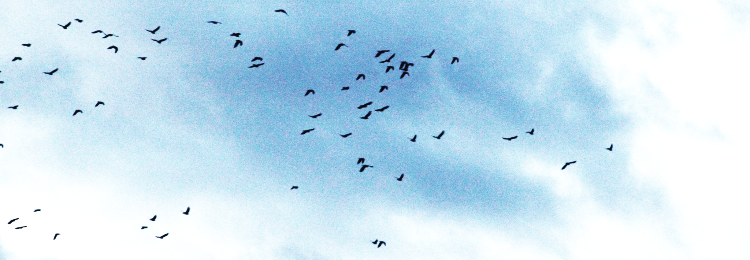
Cooperation—not competition—underpins innovation. To spur creativity, and to encourage people to come up with original ideas, you need to use the lure of the carrot, not fear of the stick. Cooperation is the architect of creativity throughout evolution, from cells to multicellular creatures to anthills to villages to cities. Without cooperation there can be neither construction nor complexity in evolution.
–Martin Nowak with Roger Highfield, SuperCooperators: Altruism, Evolution, and Why We Need Each Other to Succeed.
In recent papers, Dr. Martin Nowak has argued that cooperation is one of the three basic principles of evolution. The other two are mutation and selection. On their own, mutation and selection can transform a species, giving rise to new traits like limbs and eyes. But cooperation is essential for life to evolve to a new level of organization. Single-celled protozoa had to cooperate to give rise to the first multicellular animals. Humans had to cooperate for complex societies to emerge.
“We see this principle everywhere in evolution where interesting things are happening,” Dr. Nowak said.
While cooperation may be central to evolution, however, it poses questions that are not easy to answer. How can competing individuals start to cooperate for the greater good? And how do they continue to cooperate in the face of exploitation? To answer these questions, Dr. Nowak plays games.
The B/C>K Equation = When the Benefit-to-Cost (B/C) Ratio of Cooperation Is Greater than the Average Number of People in the Network (K), then Cooperation Emerges
As Dr. Nowak developed his neighborhood game model, he realized it would help him study human cooperation. “The reality is that I’m much more likely to interact with my friends, and they’re much more likely to interact with their friends,” Dr. Nowak said. “So it’s more like a network.”
Dr. Nowak and his colleagues found that when they put players into a network, tight clusters of cooperators emerge, and defectors elsewhere in the network are not able to undermine their altruism. “Even if outside our network there are cheaters, we still help each other a lot,” Dr. Nowak said. That is not to say that cooperation always emerges. Dr. Nowak identified the conditions when it can arise with a simple equation: B/C>K. That is, cooperation will emerge if the benefit-to-cost (B/C) ratio of cooperation is greater than the average number of neighbors (K).
“It’s the simplest possible thing you could have expected, and it’s completely amazing,” he said.
Boost Cooperation by Boosting Reputation: Rewarding Cooperators and Shunning Non-Cooperators
Another boost for cooperation comes from reputations. When we decide whether to cooperate, we don’t just rely on our past experiences with that particular person. People can gain reputations that precede them. Dr. Nowak and his colleagues pioneered a version of the Prisoner’s Dilemma in which players acquire reputations. They found that if reputations spread quickly enough, they could increase the chances of cooperation taking hold. Players were less likely to be fooled by defectors and more likely to benefit from cooperation.
In experiments conducted by other scientists with people and animals, Dr. Nowak’s mathematical models seem to fit. Reputation has a powerful effect on how people play games. People who gain a reputation for not cooperating tend to be shunned or punished by other players. Cooperative players get rewarded.
“You help because you know it gives you a reputation of a helpful person, who will be helped,” Dr. Nowak said. “You also look at others and help them according to whether they have helped.”
The above text is excerpted from the article: Carl Zimmer, “In Games, an Insight Into the Rules of Evolution,” The New York Times, July 31, 2007.
What Do You Think?
How can competing individuals start to cooperate for the greater good?
How do competing individuals continue to cooperate in the face of exploitation?
